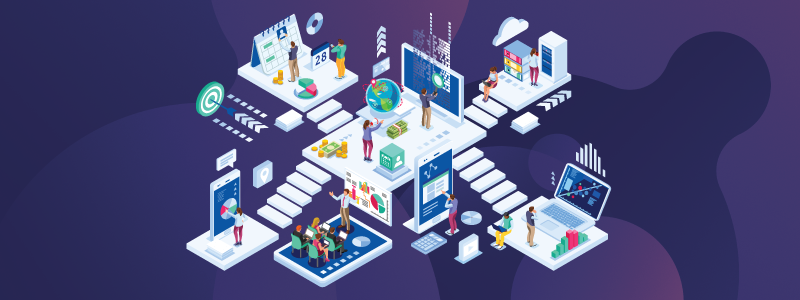When ACT | The App Association started this series in March with Antitrust and You Part 1, we highlighted some concerns with a potential nondiscrimination regime, pointing to the outlines of an idea in the House Antitrust Subcommittee’s report. We hoped Committee members would decline the idea since it could snatch away some of the digital economy’s most popular conveniences, along with fundamental benefits for small competitors. But alas, it’s now November, and both the House and Senate are considering ambitious nondiscrimination bills. The Senate’s version is the American Innovation and Choice Online Act (S. 2992), and it would apply across all of the different types of platforms, from retail to search to software.
While the allegedly harmful business practices that are the targets of these bills differ markedly across these contexts, S. 2992’s prohibitions are identical for each kind of platform. But more importantly, the ways in which S. 2992 would shift costs from large companies to small companies doing business on the platforms are rather similar.
Software platforms (app store / operating system offerings) are, currently, a top distribution method for developers because software platforms take several measures to ensure that consumers trust that their apps are safe to download. Specifically, the platforms actively decline and remove software that poses untenable privacy or security risks to consumers. Section 2(a)(2) of S. 2992 would essentially prohibit software platforms from removing bad actors, which would flood our devices with the associated privacy and security risks and make consumers rationally unwilling to download software from companies that lack a major public profile. The resulting hesitancy shrinks the marketplace for smaller app companies while absolving the larger companies, like Spotify, of the commission they pay software platforms now. This is a clean solution for Spotify because it helps prevent smaller companies from challenging them, by raising their costs, while lowering their own overhead expenses. It would reshape the platform to fit Spotify’s needs.
A similar dynamic exists for retail platforms. This year, Americans are feeling the effects of supply chain disruptions, and small businesses selling durable goods are especially at risk. Amazon enabled highly efficient retail distribution even for tiny companies with its Prime program, enabling them to credibly compete with larger rivals. For example, a Prime seller can guarantee two-day shipping for customers by using Fulfillment by Amazon (FBA). This offering augments a small seller’s reach and ability to do business at a time when supply chain issues are denying Americans access to a variety of Christmas shopping options as early as October. Unfortunately, S. 2992 would be the Grinch that stole Christmas from small companies because multiple sections of the bill would prohibit Amazon from providing Prime services, including FBA, for retail sellers. This is especially worrisome for small companies because FBA lowers shipping costs for them by an average of 30 percent. Just like with software platform services, taking away Amazon seller services disproportionately hurts small companies and benefits their larger competitors because smaller firms benefit from these services more than larger rivals. Smaller companies want to be able to focus on what they do well and leave the logistics to Amazon, and if it can guarantee two-day shipping for cheaper than they can find elsewhere, small companies currently enjoy a distinct advantage.
While App Association members are rightly focused more on software platforms than retail distribution, it is hard to miss the similarities between these two contexts. Small retailers can compete with larger ones by offloading overhead cheaply to Amazon, which provides capabilities that are too costly to produce in-house. The same is true for small app makers, which generally pay a minimal registration fee—$99 per year for iOS and $25 per year for Android—to gain access to a marketplace with a billion consumers who are just as willing to download software from a company they’ve never heard of as they are from larger competitors. In short, the distribution prospects for an app maker or a retail seller in rural Iowa have never been better. If Congress enacts S. 2992, Spotify and its big company allies could, with great certainty and extreme prejudice—that is, with the threat of penalties up to 15 percent of revenue for the duration platforms provided the service at issue—banish smaller entrants from platforms built for “me but not for thee.”
